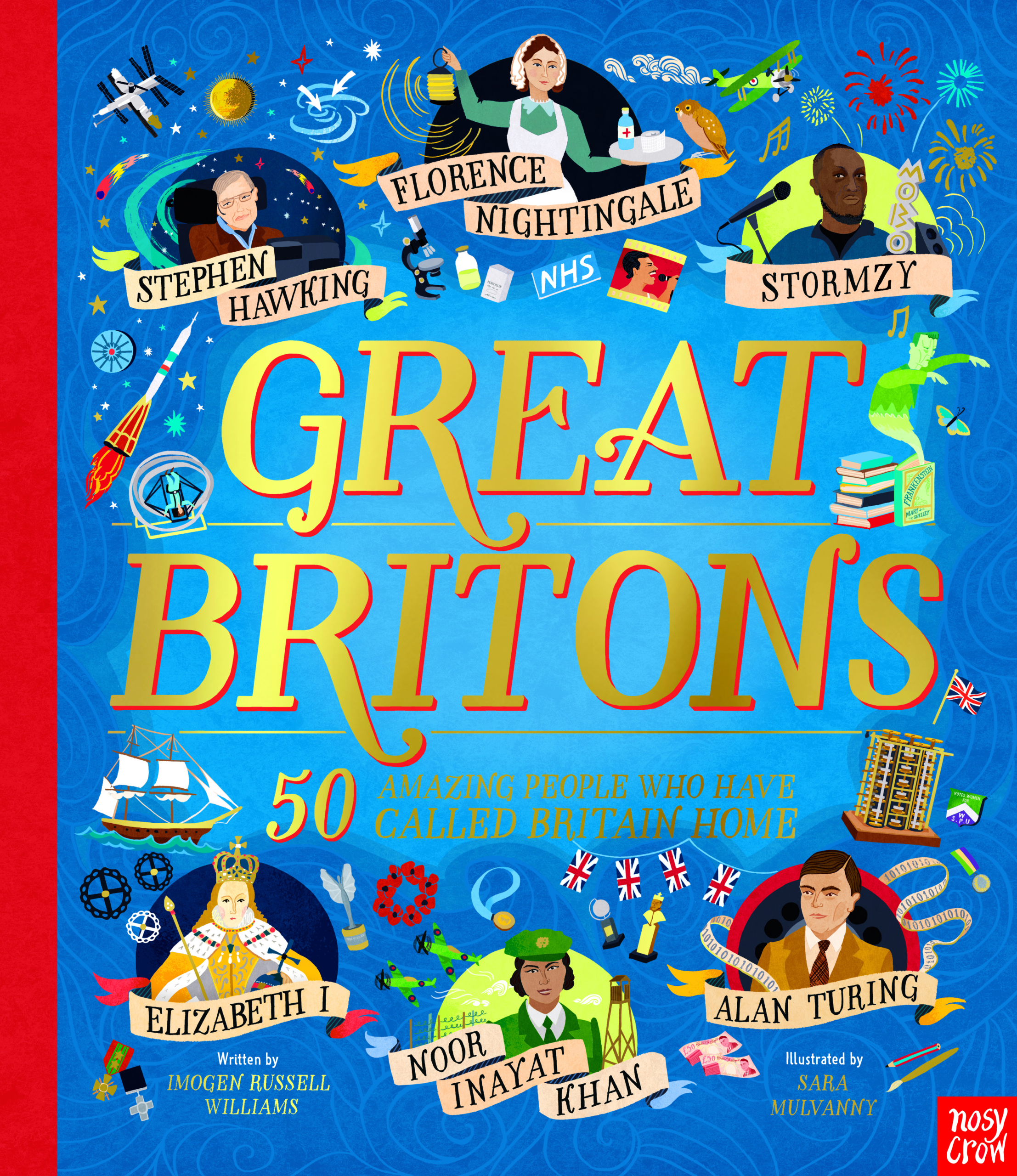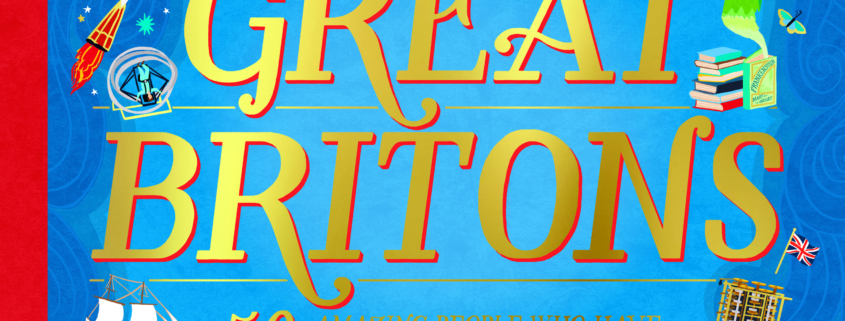Great Britons!
FCGB is delighted that Imogen Russell Williams has written a blog post about the process of researching and writing her fabulously informative book Great Britons: 50 Amazing People Who Have Called Britain Home for National Non-Fiction November 2021.

What ideas does the word “hero” bring to mind: Greek demigods, military leaders, superpowers? Or have warriors in armour and spandex lost their monopoly? Over the past five years in particular, non-fiction titles like Kate Pankhurst’s Fantastically Great Women… have familiarised young readers with a broader range of brilliant biographies and different ways to be a hero. Series like the Little People, Big Dreams books have celebrated pioneering women in STEM, people of colour who overcome racism as well as other barriers to success, disabled athletes, activists and artists, and children and teenagers who achieve extraordinary things well before reaching adulthood. The enormous and abiding popularity of these collections suggests children’s hunger for heroes whose lives and experiences are truly diverse – heroes who reflect the full spectrum of the world in which they live, rather than just those who most visibly (and violently) wield power.
When I was asked by Nosy Crow to write “Great Britons: 50 Amazing People Who Have Called Britain Home”, we spent a long time debating who should make the cut. We wanted people who were heroic in different ways – trailblazing scientists, or people with a gift for seeing the world differently, like Isaac Newton and Ada Lovelace. We wanted activists like Paul Stephenson, musicians like Freddie Mercury and Shirley Bassey, writers like Judith Kerr and Malorie Blackman, athletes like Mo Farah and Tanni Grey-Thompson, space explorers like Helen Sharman, and actors like Ian McKellen, who uses his fame, talent and visibility to campaign for LGBTQ rights. We wanted campaigners like Mary Prince and Olaudah Equiano, who chose to make their homes in Britain and tell their stories there, calling on their readers to condemn the cruelty of the slave trade and work towards abolishing it. And sometimes, we wanted to point out flaws in the heroes we had chosen – the moments when famous Britons were not, in fact, so great. We wanted to acknowledge, for instance, that Winston Churchill, the hero who led Britain to wartime victory against the odds, held some dreadfully racist views and acted unheroically at times because of them.
I loved researching the heroes in this book, and finding little insights into their extraordinary lives, from Stormzy’s being inspired by a summer reading scheme to Beatrix Potter’s real-life pet rabbits. Learning about the abuse the poet Lemn Sissay suffered as a child, or the inhumane treatment meted out to the code-breaking genius Alan Turing because of his sexuality, made me angry and sad that such brilliant people were so cruelly undervalued, while giving me a still more profound respect for their achievements. (More light-heartedly, I was delighted to learn some very silly snippets of trivia, like the fact that Freddie Mercury gave each of his cats a Christmas stocking.)
To me, a great Britain is a place that accepts and nurtures heroes of every kind, creative, scientific, athletic or entrepreneurial – people who see things differently or run counter to the norm. It recognises every child’s potential for heroic achievement, and offers them stories – both real and imagined – in which they can see something of themselves reflected. I hope our chosen Great Britons will give each of our readers a sense of heroism’s different forms – and a hero who resonates with them in particular, hinting at the heroes they might themselves grow up to be.
Great Britons: 50 Amazing People Who Have Called Britain Home by Imogen Russell Williams, published by Nosy Crow is out now.





Leave a Reply
Want to join the discussion?Feel free to contribute!